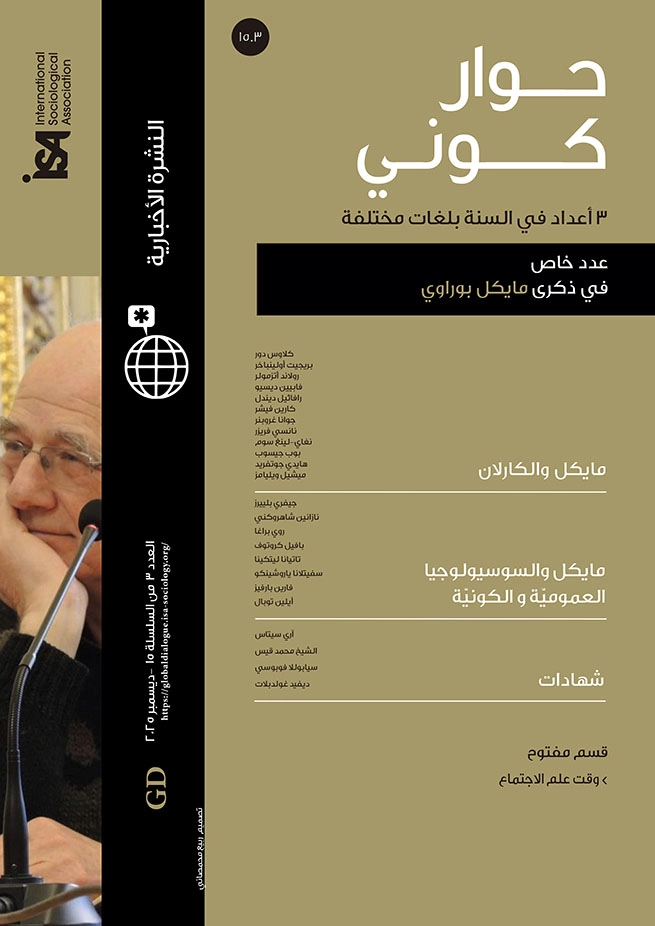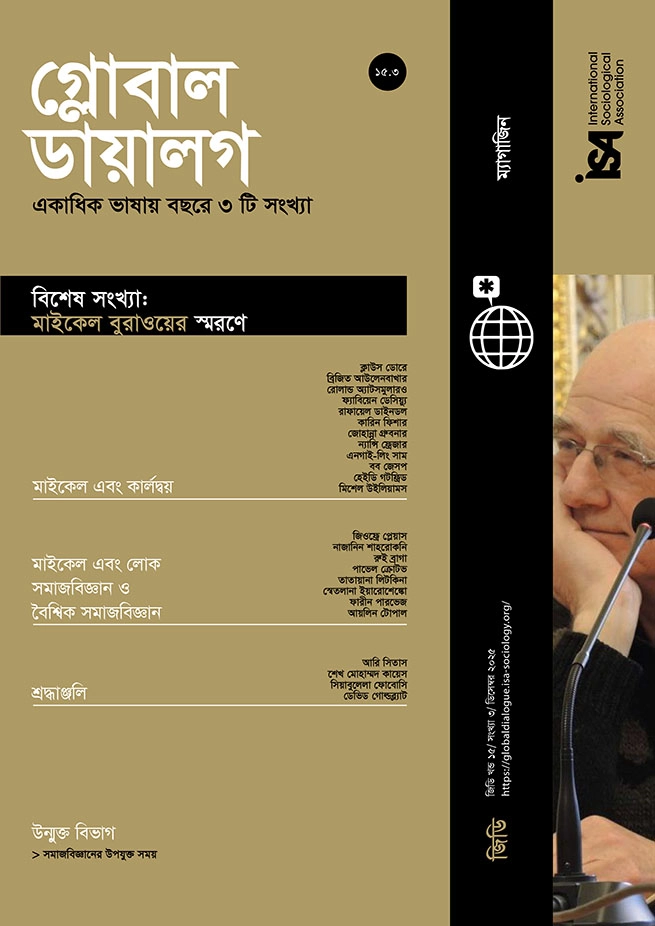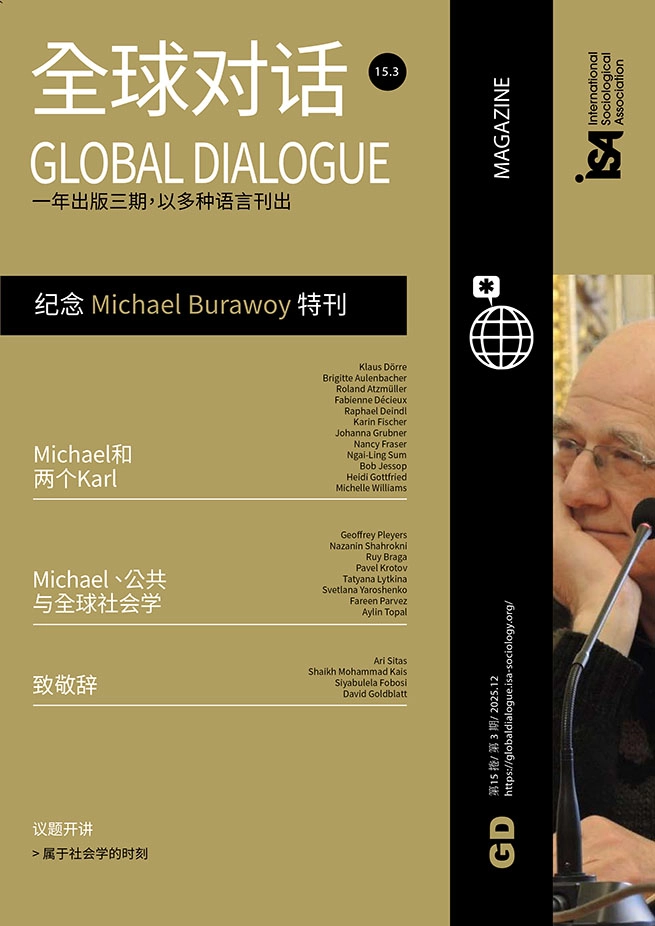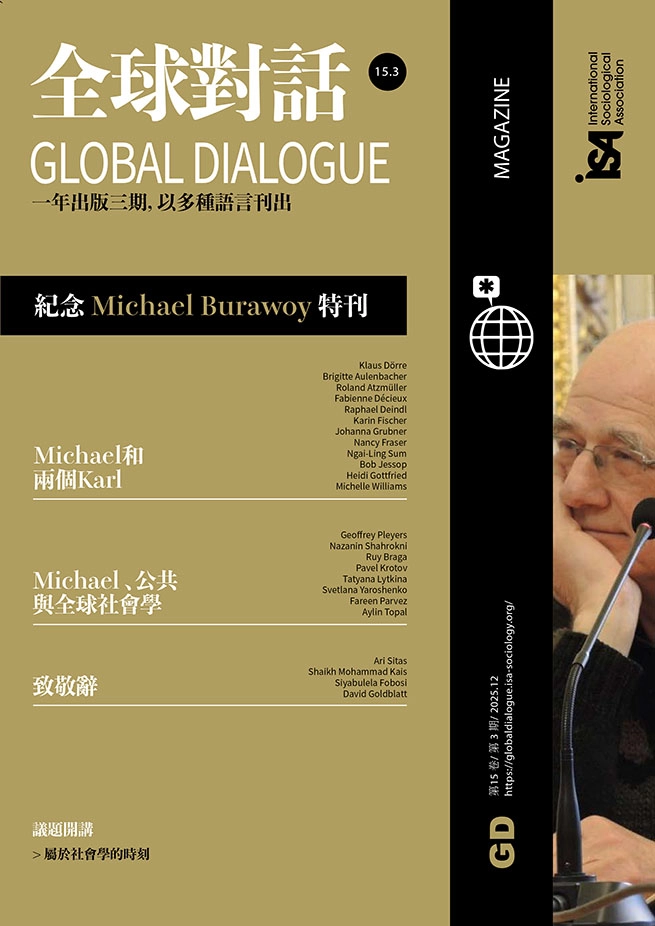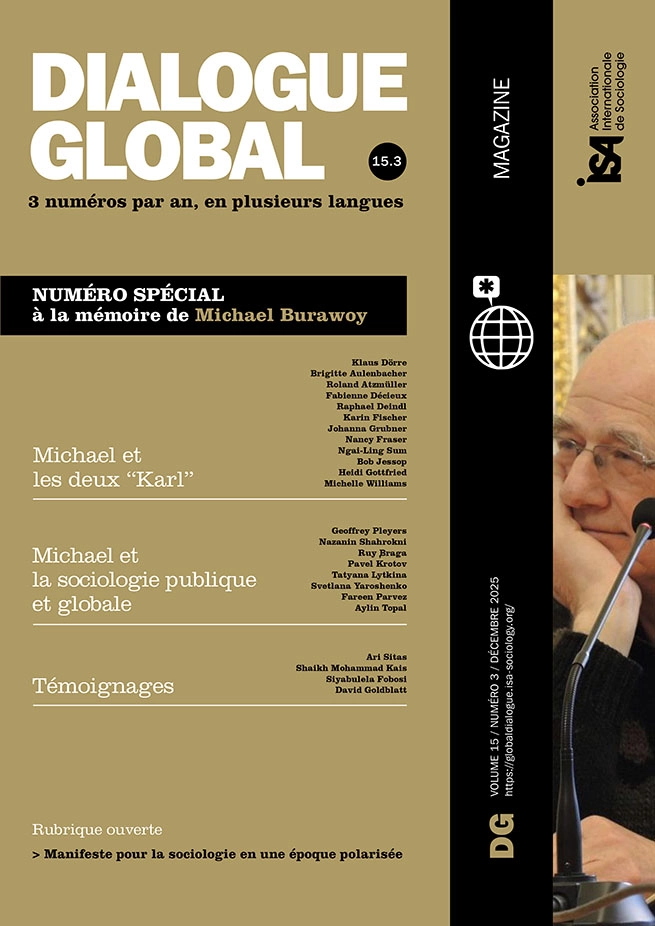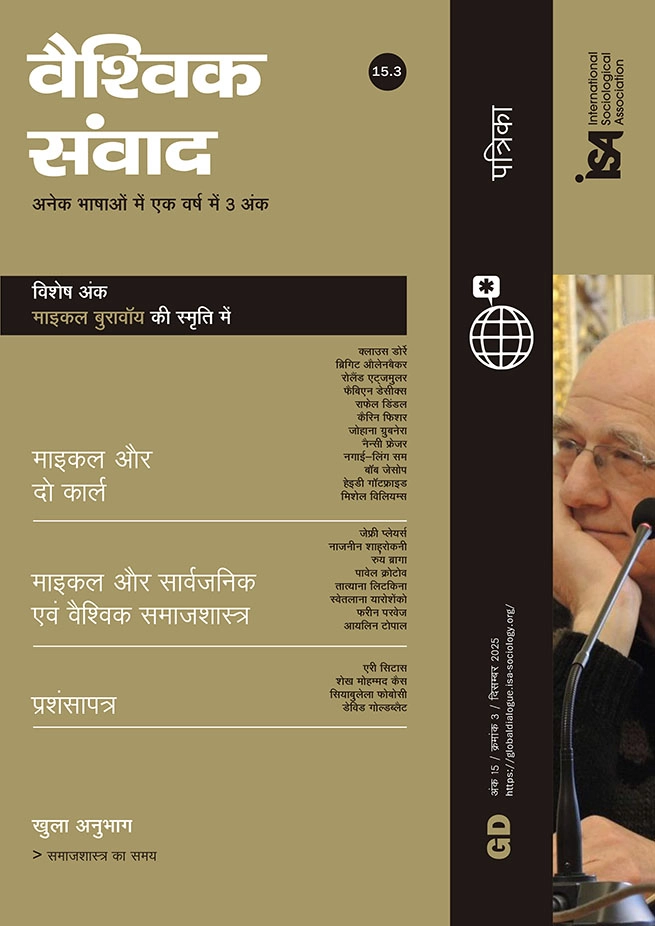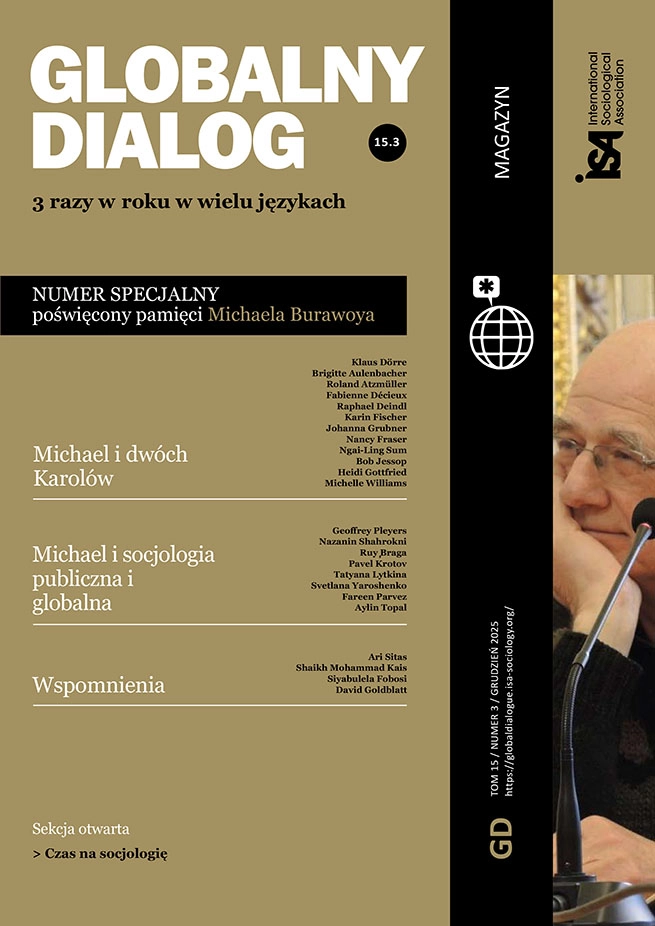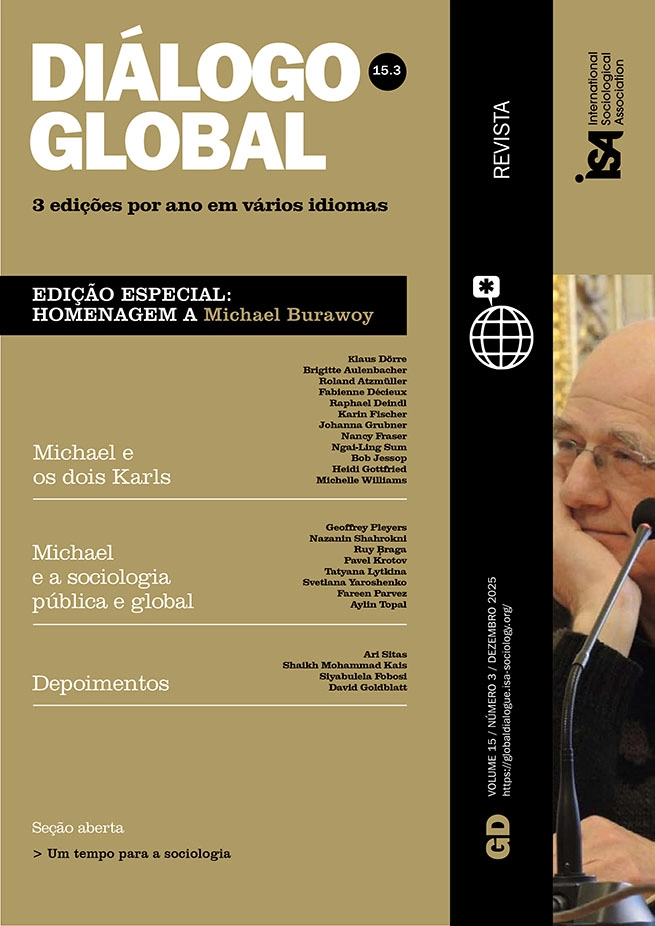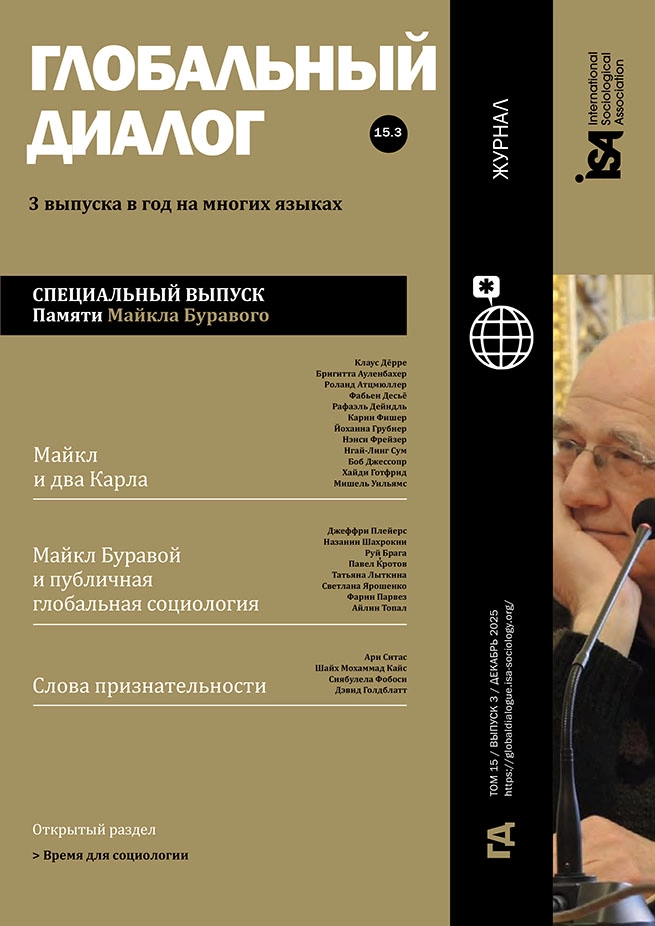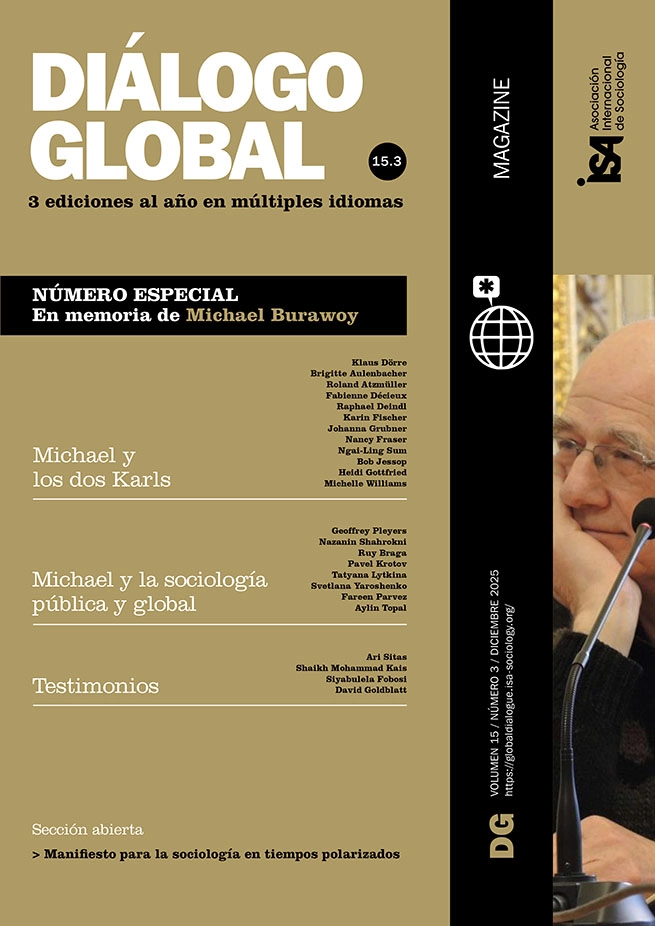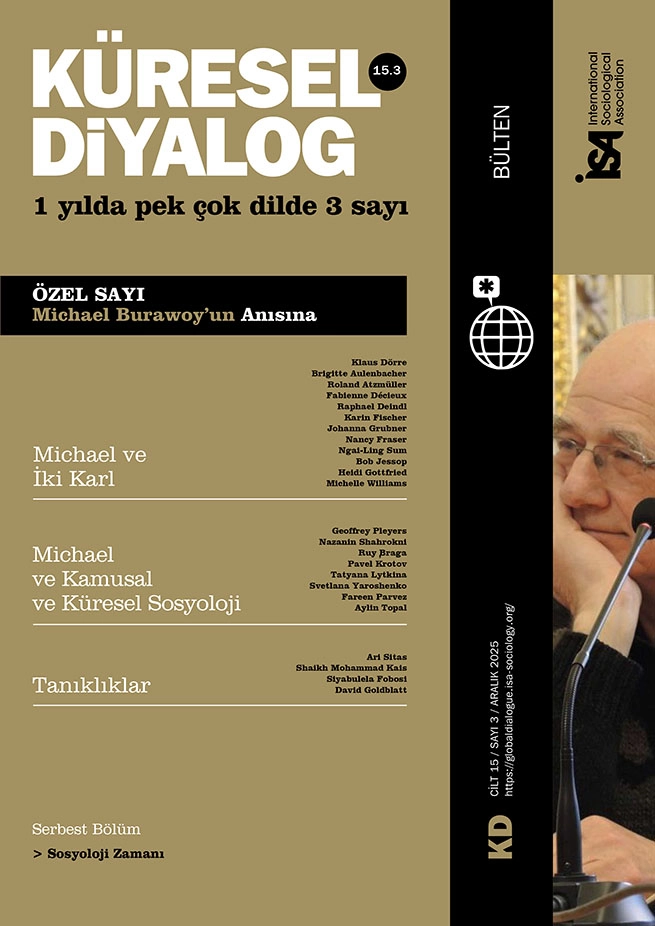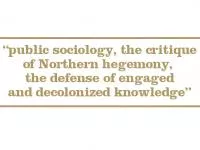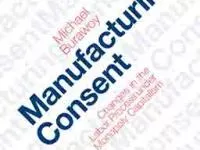Encounters and Debates with Michael Burawoy
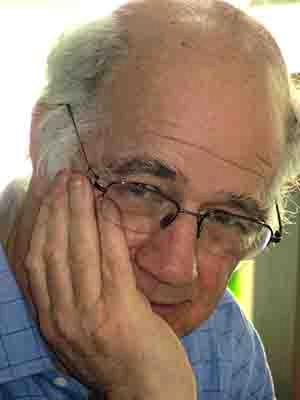
November 19, 2025
I was introduced to Michael Burawoy’s work in 1979. Eddie Webster, my teacher, came to me clutching a fresh book, Manufacturing Consent: Changes in the Labor Process under Monopoly Capitalism. He insisted that I had to use this book in the lectures I was to give as his replacement at Wits. “This is a perfect companion”, he insisted, “to Huw Beynon’s Working for Ford”, which was to form the core of the lectures. So, there I was trying to understand how hegemony was to be procured and secured by workers’ coping mechanisms through games on the shop floor. The book was based on his experiences of working in a setting like the one that Elton Mayo had studied in the 1920s, where he discovered that workers coped through informal networks of solidarity. But unlike Mayo, Michael worked there as he was to work from factory to factory in order to fathom the politics in production. That was the gift of his second book, The Politics of Production: Factory Regimes Under Capitalism and Socialism.
I subsequently discovered how close he was to Eddie Webster and the popular historian Luli Callinicos who were my mentors and he extended his generosity of friendship and care to me since we met face-to-face in Durban in 1989. He was fascinated by the work we were doing within the workers’ theatre movement in the militant trade union movement and how we practiced our own “public sociology”. We debated vigorously the prospects of the social movement that was all around us steeped in the so-called Natal Civil War.
He subsequently hosted me in Berkeley’s Sociology Department twice, in 1993-1994 and 1999-2000. He actually got me out of the throes of having to chair the Media and Culture committee of the civil war’s peace accord, where we were asked to spin progress to the press during the day and face the restart of the violence each night. It was an unforgettable year as he passed me on to his many colleagues and friends – Peter Evans, Michael Watts, Gillian Hart, Asef Bayat, Michelle Williams, and even Manuel Castells – who were all ears and care about the transition in South Africa. Michael was already transfixed by post-glasnost Russia so the comparisons of transitions were flying around as seminar ghosts. I had to return to South Africa for the first real democratic elections to be an ANC voting monitor.
The image of Burawoy whizzing around on his sporty bicycle and helmet from Oakland where he lived to campus and near to Monterey Market, where we lived and the constant “you must read this” and “no, you read that” kept us going, as I was becoming more and more familiar with his effort to theoretically justify the ethnographic work that made him a sociological figure of note.
There were many meetings in the years to come as South Africa was becoming a second home: he visited as soon as I moved to the University of Cape Town in 2010 where he also introduced me to AnnMarie Wolpe, his long-time friend. The ageing feminist nabbed me on the spot to serve on the Harold Wolpe Trust, in memory of another friend and sociologist. He wanted to be part of the launching of my Mandela Decade book, which the Trust hosted but he had pressing international commitments. He tried to make me work with him during his ISA presidency, but I was tired of continuing with the Association after I had spent eight years animating its cogs and spindles.
In 2012 we were teamed up by Sumangala Damodaran at Ambedkar University in Delhi to debate our respective qualitative work on shopfloors and working-class communities. We disagreed on truth and lies! What I mean is: his access of factory spaces was based on not revealing his actual objective and watering his Marxian influences down to HR talk! But I never had access in Apartheid South Africa through managerial networks but rather through shop stewards and their trade union officials. We also disagreed on the word “ethnography”– being of some Greek descent I always harbored an aversion to a word that means “in-scribing” the “ethnos” onto your subjects!
Then again, we met in Johannesburg as he was working on his Bourdieu book with another good friend, Karl von Holdt. Then again online in Freiburg about public sociology and the circulation of sociological ideas, hosted by our friend Wiebke Keim. Then again in Cape Town to discuss the University system and its new managerial ethos. And finally, we got together in Johannesburg to pay tribute to our friend Eddie Webster, hosted by Sarah Mosoetsa and Michelle Williams. He also paid tribute to another retired but audacious friend: Jackie Cock.
Michael was to be killed in Oakland a few weeks later.
We lost a remarkable sociologist of the workplace and of the practice of sociology, and a great synthesizer of sociological macro and micro trends. There is a lasting image of his restless theatricality: the pacing, the chalk, the quadrants he would draw to express categories, his laughter and his horror at the atrocity we were becoming. He left us with his reflections on the rise of authoritarian populism and genocidal violence.
Ari Sitas, University of Cape Town and University of Stellenbosch, South Africa <arisitas@gmail.com>

